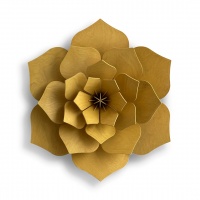What is lurking in your garden? - by Ruby Ward
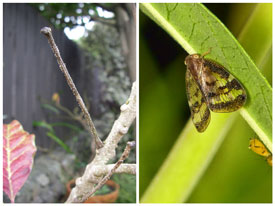
Passionvine hopper eggs and adult
It may seem during winter that we need not be concerned about pests and diseases – there is nothing happening to catch our attention. But winter can be a great ally in the battle against summer pests and you can improve your chances of winning the battle with a little judicious ‘pottering’ about when garden activity is quiet.
We may not enjoy the cold weather that comes with winter but for the devoted gardener a cold winter is a good winter. A few good frosts every winter help to exterminate over-wintering pests, reducing their potential to bother us in spring. Gardeners in regions that do not receive frosts may need to work a bit harder to reduce the supply of over-wintering pests and diseases.
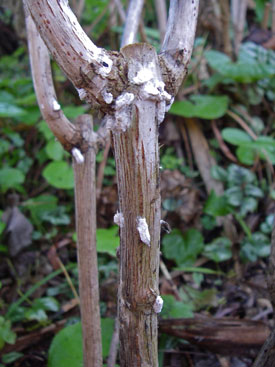
Hydrangea scale
Pottering about in the garden I spied these stalks on the Puriri tree, the dried up remains of the leaf stem. The ragged edges to it are the eggs of the passionvine hopper, a pest that plagues my garden in summer on all sorts of plants. The best method of control is to snap these off the tree and throw them in the fireplace – not in the compost where they can survive the winter and hatch out in spring.
I’ve been pruning hydrangeas and spotted these lumps of white waxy fluff in clumps on the stems. This is the overwintering egg mass of a scale insect (hydrangea scale) which in summer feeds on the plant. In bad infestations, it can also appear on the undersides of the leaves. Where possible prune away the infected stems and burn the clippings; follow up with a liberal spray of ‘spraying oil’ (ask at your local garden centre) which will smother and asphyxiate the eggs and young.
Roses will thank you with healthy foliage and strong blooms if you give them a winter spray, especially after pruning. Spraying oil and copper oxychloride (which can be mixed together) are your best friends here and will help to eliminate the overwintering pests (such as the rose scale pictured here) and spores of fungal diseases. Spray the roses liberally so the spray mixture can penetrate the bark and coat the stems. Also spray the ground around rose bushes where old leaves may harbour pests and diseases.
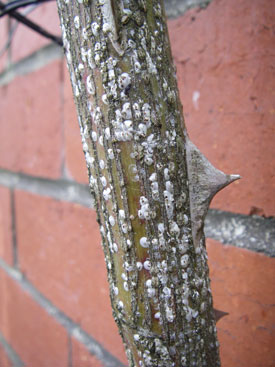
Rose scale
My lemon tree growing in a pot is surviving and fruiting against the odds. It was attacked over summer by lemon tree borer and now the new fruit are diseased with these ugly bumps, called Verrucosis. Strictly speaking I should remove these fruit and any infected leaves but I treasure the few fruit I get and the disease does not affect the juice inside. Copper spray (as above but without the oil) should be applied before, after and during flowering to prevent further infection.
So after my pottering I’ve managed to eliminate quite a few potential sources of bugs so I expect to have fewer pests around in spring and summer – let’s hope so!
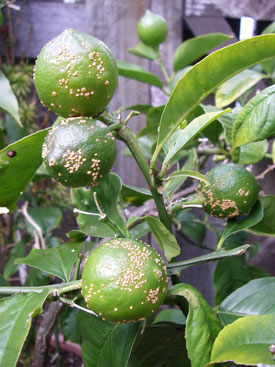
Verrucosis on lemons


